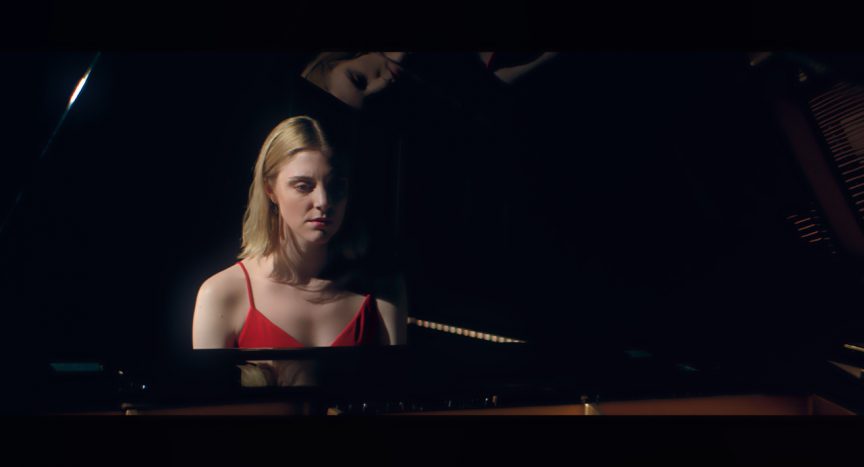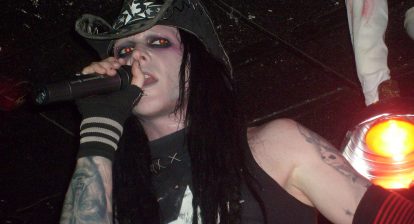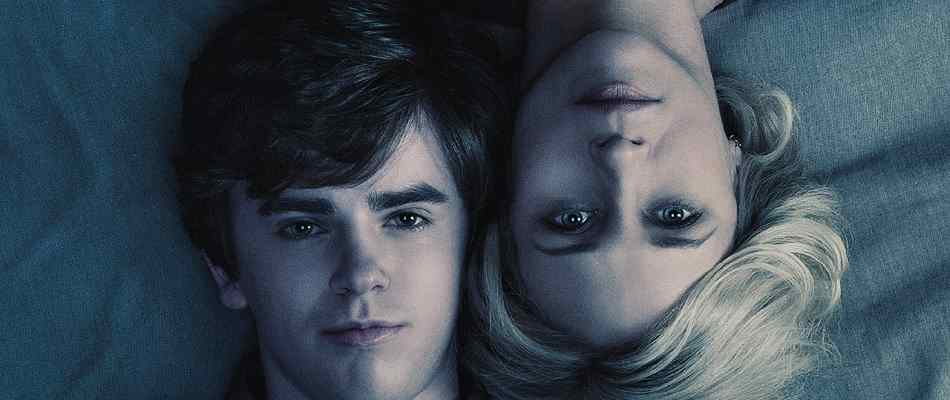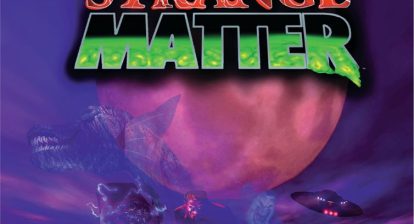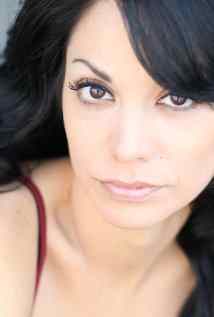Bloodthirsty is a new release featuring a twist on the typical werewolf tale. The film follows the story of Grey (Lauren Beatty), an indie singer working on her sophomore album. Grey has been experiencing visions that she is a wolf, and struggling to find the inspiration needed for songwriting. When she begins working with producer Vaughn Daniels, she regains her inspiration and goes through both a personal and professional transformation that she never expected.
I recently reviewed the film, and also sat down with co-writers mother-daughter team, Wendy Hill-Tout and Lowell. We had a great time chatting about the film’s origins and women in horror.
Related: Bloodthirsty Brings Diversity and Depth to Werewolf Horror
WICKED HORROR: First off, I’d like to congratulate you both on the upcoming release of Bloodthirsty. I recently watched and enjoyed the film, and I’m looking forward to sharing my thoughts with our readers.
Wendy, from what I understand, you’ve written screenplays in the past, and Lowell—this is your first one, but you’ve come from a background of writing music. This was the first experience for you both co-writing together. What was that like?
LOWELL: It was really nice. It was fun, and a great bonding experience for us that we’ll always remember. I don’t think that a lot of mothers and their daughter get to do something so cool together.
WENDY HILL-TOUT: Professionally, it’s a really amazing experience to work creatively with your daughter. I don’t think a lot of people have that opportunity, so it was really special.
LOWELL: Also, I was going through a lot this whole time. So much of the film is autobiographical, and I think it was a neat way of talking to my mom about what I was going through as a woman in the music industry. But I also think it was really cool that she was like, let’s write about this and make something out of it. I think that’s pretty amazing.
WICKED HORROR: That leads into my next question, which is: what was the inspiration behind the story? Any more thoughts on that you’d like to share?
LOWELL: Basically, I had just finished an album, and it was critically acclaimed. Not commercially super-successful, but still quite an achievement. After that, I had a lot of pressure on me to make a follow-up album. It was really consuming me and my mom asked, how would you like to try something else? Maybe take a break from music for a bit, and we’ll write a screenplay together. So that was the start of it, and they always say “Write what you know”, so I was writing a lot of metaphors related to what was happening. It was metaphorical to what was going on with my artistic writer’s block and also with some of the characters I was working with as well.
WENDY HILL-TOUT: It was Lowell’s concept, and it was about a young, female singer-songwriter who goes to work with this music producer at his studio in the woods, and then it turned into a horror story. I think at the time, the Me Too movement was quite strong, and I think a lot of young women in music and other industries too kind of get thrown into situations, as we’ve seen in the press. So, I think it started from there. But it really became a female empowerment story about a woman who’s not only facing herself and who she’s becoming, but also coming to accept that to achieve her art, she has to really be who she is—in this case, a werewolf.
WICKED HORROR: I liked the female-driven aspect of the film. I feel like we’re seeing more of that in the horror genre, and look forward to more in the future. In the past, most werewolf stories have been centered on a male character’s transformation. So that was cool to see a female in the main role, and not just existing as a “final girl” or love interest. I enjoyed seeing the focus on Grey’s transformation and to see Vaughn take more of a side seat, so to speak. Going along with that, is there anything related that you hope viewers take away from the film?
LOWELL: I was thinking about what you just said, and you know—werewolves are not very pretty. So I think as creators, for us to make the lead, who’s obviously quite pretty, be un-pretty in her transformation was a bold move. Traditionally, when it comes to more mystical villains, you have not a lot of room for an ugly female, and usually that’s centered on witches, who are usually older women. So I think that’s an interesting point. We definitely took a feminist approach, from my perspective.
WENDY HILL-TOUT: For me, being in the film industry, I’d like to say it’s all different. You know, we made a female empowerment story, but you know what? I’m not sure women really have power. I’d say this is a fantasy film in how Grey becomes by the end. It’s still fantasy, and we have a long way to go as women in the industry. But I’m really glad to see female directors in the horror genre, like Amelia Moses, who directed this film, and female writers. It was a horror film done primarily by women. I’d like to see that trend continue in the future, with more empowered filmmakers.
WICKED HORROR: I’m a big reader as well, especially in the realm of indie horror. It’s been nice to see an increase in women authors in that area as well, and in the horror genre overall. It’s a genre that has been male-dominated in the past, and women weren’t often seen as people who would write horror. We have Women In Horror Month, but it would be nice to see it celebrated all the time, instead of just that one month of the year.
LOWELL: And not even just in horror—I’m a huge reader as well, and it’s painful sometimes going through lists like The Top 100 Books of All Time. Unless you’re looking at the New York Times, which tries to include 50% women. But in general, it’s all these novels that I then buy and that I read, but I’m thinking that I don’t really connect to this character at all. You know, it’s not for me, so as a creator, I’m constantly thinking to myself, how can I create art that is for me? I don’t mean that from a selfish aspect, but I mean for my daughter, if I have one someday—or for my stepdaughter that I have now. What can I make for her so that she grows up feeling heard and like she has a voice? Which is probably what’s so neat about making this with my mom, because she’s doing this for me.
WICKED HORROR: As a horror fan, I have to ask if you were both fans of the genre coming into this project? Do you have any favorite films or sub-genres?
LOWELL: I’m a big fan of horror. It’s basically the only genre that I love, love, love. The one thing I don’t like about horror is that it’s rooted in racism and misogyny. So, it was definitely a deliberate choice to go for horror and to be feminist. At the moment, I love Get Out. I think that’s a great movie. It’s my favorite of the last five years.
WENDY HILL-TOUT: I certainly love all the genres. I have to say, some of the films that stand out in my life, such as Rosemary’s Baby or The Birds, were so impactful to me. I mean, I couldn’t walk by birds after that. To this day, it’s incredibly done. American Werewolf in London is another. There are so many good horror films. I think it’s an amazing genre because it gives you the chance to really look at human beings, and who they are. That’s what I loved about writing on this one, because that appeals to me as a writer. So you can take the blood and gore and form movies, and put it together with human experience and emotion. That’s an incredible possibility for writers and directors, and filmmakers. That’s really important to me.
Bloodthirsty is available in select theaters and On Demand as of April 23.
Follow us on social media: Twitter, Facebook, Instagram, and YouTube
